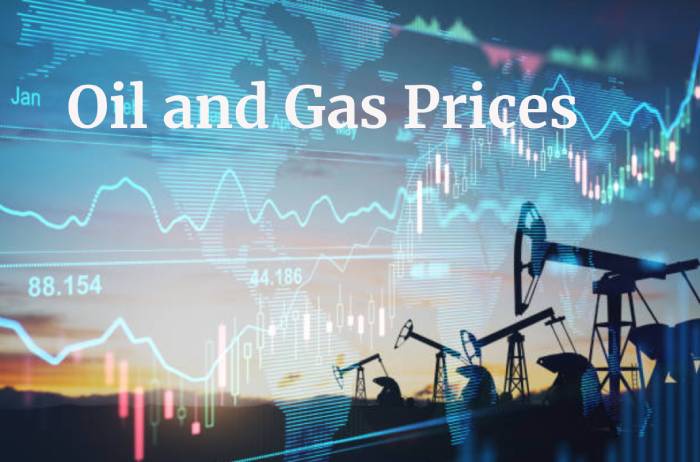Oil has been known to play a crucial role in almost every aspect of modern society. From transportation to food production, it is also used for energy generation. It is a liquid that can be refined into various products such as petrol and diesel. The price of crude oil plays an important part in the global economy.
Over the last few weeks, oil prices have fallen, but they are expected to bounce back soon. The recent drop in oil prices is due to a combination of factors, including oversupply, political instability in Iran and the Middle East, and increased U.S. The production is done. The long-term trend for the price of oil is positive. The long-term trend for oil prices is positive. As demand for energy continues to increase, so does global supply. Higher oil prices in the future will be a result of this.

Table of Contents
What Is the Impact of Rising Oil Prices on World Economic Growth?
Oil prices have been steadily increasing since 2014. This means that companies are having to pay more money to get their products from different parts of the globe. As a result, many people believe that this will lead to slower global economic growth. However, this isn’t necessarily true.
First, let’s look at how much demand there is for oil. The International Energy Agency (IEA) estimates that the total amount of oil used by humans was around 84 million barrels per day in 2017. That number has remained fairly steady for the past few years. If we assume that the rate of increase remains the same, then the IEA expects that the figure will be around 87 million barrels per day in 2018.
This is a small increase compared to other factors that affect the economy. For example, the World Bank has estimated that the worldwide GDP grew by 3.4% last year. So, it’s unlikely that the rise in oil prices will have any significant effect on the overall size of the global economy.
What Is the Role of Oil and Gas in different Industries?
The oil and gas industry is an important sector of the global economy, accounting for over 10% of the global GDP. It has a significant impact on many industries, including food and beverage, automotive, construction, chemicals, electronics, and others. Oil and gas are important to the global economy because they are used for many purposes. They are important for transportation and energy because they can be used to power cars and trucks. They can also be used for heating and cooling homes and offices.
Because of their importance, it is important that oil and gas be extracted in a safe manner. For example, when drilling into the earth to extract oil and gas, it is important to prevent leaks from the wellbore and other parts of the extraction equipment. It is also important to ensure that the extraction equipment is not damaged by impacts or collisions with other objects. Oil and gas are also dangerous if they escape into the environment, such as if they escape into the atmosphere. The dangers of oil and gas Oil and gas are very dangerous substances.
How Are Oil Prices Set in World Market?
There is a lot of confusion surrounding how oil prices are set in the world market. There are many ways to set the price for a barrel of oil. In this article, I will go over some of the most common ways that oil prices are set and the pros and cons of each method. The Oil Price Set by OPEC OPEC is an association of 12 countries that have agreed to cut back on their production to try and raise the price of oil.
OPEC is not an entity that is run by a single country, but rather a consortium of several countries that agree to cut back on production in exchange for higher oil prices. OPEC members include: Algeria, Angola, Ecuador, Equatorial Guinea, Gabon, Iraq, Iran, Kuwait, Libya, Nigeria, Qatar, Saudi Arabia, and Venezuela. When OPEC meets to make a decision about what to do with the oil that they produce, they take into account what other oil-producing countries are doing at the time, as well as what other countries want to see in terms of the price of oil.
How Does Oil and Gas Prices Affect the Living Cost of the Common Man?
1. One of the major factors which contributes to the cost of living in world is the price of oil and gas. When prices rise, it has an effect on all sectors of the economy including the consumer’s pocket.
The same goes for when they fall. So we have a better understanding of how the global economy works and what affects the market. Tom Smith, CEO of Smart Energy. He will be discussing the effect of oil prices on the UK economy. What is the impact of oil prices on the economy? Oil prices affect the economy in two ways. First, the price of oil has a direct impact on the cost of production. If the price of oil rises then the costs of producing goods and services rise.
The second way that oil prices affect the economy is through their impact on the exchange rate. As we know, the exchange rate affects the value of money, which in turn affects the cost of buying imported goods and services. So higher oil prices increase the cost of imported goods and services.
In summary, it can be said that oil prices affect the economy in two ways. Firstly, by increasing the cost of production. This in turn increases the cost of goods and services produced in the UK, which means that UK consumers will be paying more for goods and services.
What Will Be the Trend of Oil and Gas Prices in the Coming Years?
The global oil and gas market is going through a period of volatility. As it is said, oil prices are on the rise while natural gas prices are on the decline. The reasons behind this are many, but the main reason is the increasing demand in countries around the world. The increase in demand has led to an increase in the prices of oil. However, the demand for natural gas is also increasing in the same way as the price of oil.
The demand for natural gas is increasing because of the increasing number of industries that use natural gas as a source of energy. It is expected that this trend will continue in the near future. The United States has been the largest consumer of natural gas since the 1980s. It is estimated that by 2030, the United States will be consuming more than 70 per cent of the global natural gas supply.
